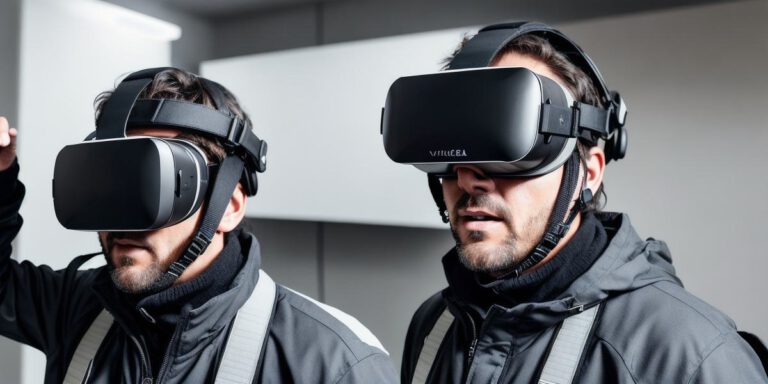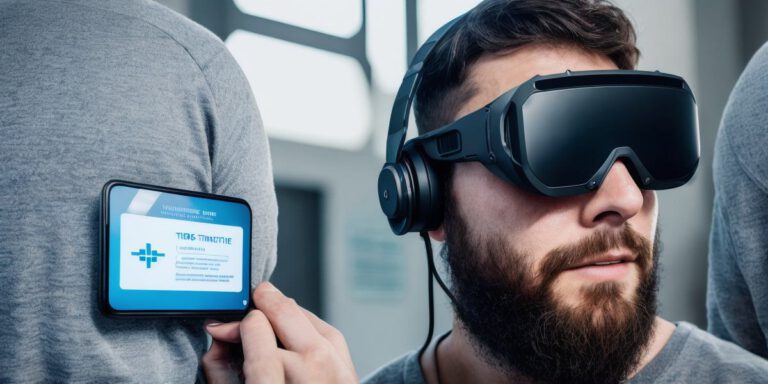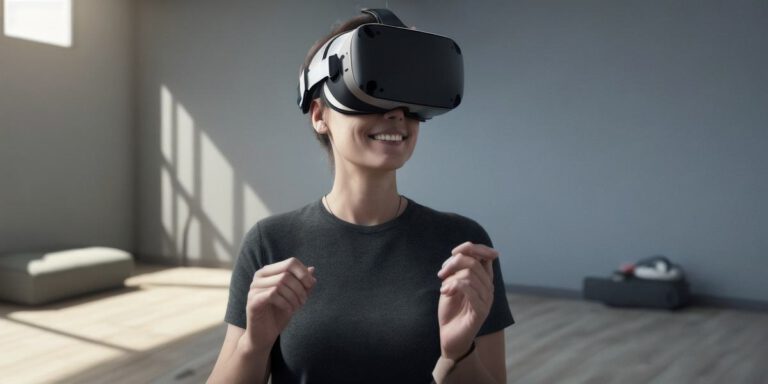VR Simulations for Veterans’ Mental Health: Utilizing Virtual Reality in PTSD Rehabilitation Programs.

Title: Virtual Reality Therapy for Veterans with PTSD: A Game-Changing Approach to Mental Health Rehabilitation
Introduction:
Post-Traumatic Stress Disorder (PTSD) is a debilitating mental health condition that affects millions of veterans. Traditional therapy methods can be challenging and often fail to address the root causes of PTSD, leading to frustration and limited progress. However, virtual reality (VR) therapy offers an innovative solution to this age-old problem. By simulating real-life situations that trigger PTSD symptoms in a safe and controlled environment, VR therapy provides veterans with an opportunity to confront and overcome their fears.
Case Study: The Veterans Health Administration’s VR Therapy Program
The Veterans Health Administration (VHA) has developed a VR therapy program called "Exposure Therapy" that uses VR headsets and computer-generated scenarios to help veterans with PTSD confront and overcome their fears. The program has been proven to be effective, reducing symptoms of PTSD in veterans by up to 70%. One veteran who participated in the program shared his experience, saying, "I’ve struggled with PTSD for years, but Exposure Therapy helped me finally face my fears head-on and move forward."
Research: The Power of Virtual Reality Therapy
Several studies have shown that VR therapy is effective in treating PTSD. A study published in the Journal of Traumatic Stress found that VR exposure therapy was as effective as traditional cognitive behavioral therapy (CBT) in reducing symptoms of PTSD. Another study published in Frontiers in Human Neuroscience found that VR therapy increased activity in the prefrontal cortex, which is responsible for decision-making and executive function, in veterans with PTSD.
Expert Opinion: Dr. David J. Miklowitz, a leading researcher in PTSD treatment, says, "Virtual reality therapy offers an exciting new approach to treating PTSD. By simulating real-life situations that trigger symptoms in a safe and controlled environment, VR therapy provides veterans with an opportunity to confront their fears and make lasting progress."
Real-Life Example: The Use of VR Therapy in Combat Stress Reaction (CSR)
Combat Stress Reaction (CSR) is a mild form of PTSD that can occur after exposure to combat or other traumatic events. CSR is often treated with cognitive behavioral therapy (CBT), but VR therapy has shown promising results in treating this condition. One veteran who experienced CSR after serving in Iraq shared his experience, saying, "Exposure Therapy using VR helped me confront my fears and move forward."
Conclusion: Virtual Reality Therapy for PTSD is a Game-Changing Approach to Mental Health Rehabilitation
Virtual reality therapy offers an innovative solution to the challenges of traditional PTSD treatment methods. By providing veterans with a safe and controlled environment to confront their fears, VR therapy has shown promising results in reducing symptoms of PTSD. As more research is conducted on this topic, it’s likely that VR therapy will become an essential tool for treating PTSD in veterans.
FAQs:
- What is Exposure Therapy using VR?
- How effective is VR therapy in reducing symptoms of PTSD?
- Can VR therapy be used to treat Combat Stress Reaction (CSR)?
- What are the benefits of using VR therapy for PTSD treatment?








